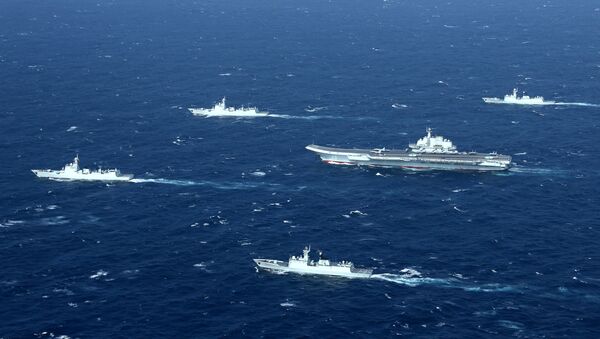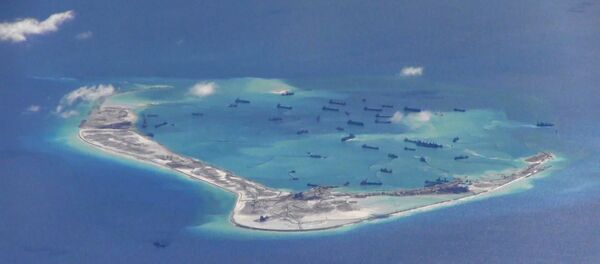"With respect to the so-called militarization, China never has any intention to engage in militarization in the South China Sea," Li said following a meeting with Australian Prime Minister Malcolm Turnbull.
In recent years China has reclaimed land and constructed port facilities, lighthouses and an airstrip on the Spratly Islands, an island chain to which China, as well as several other Pacific Rim countries, lays claim.
The Prime Minister acknowledged the construction work but said it was "primarily for civilian purposes."
"Even if there is a certain amount of defense equipment or facilities, it is for maintaining the freedom of navigation."
The South China Sea is a highly-contested region through which $5 trillion in global shipping trade passes annually. While China claims most of the sea, overlapping claims are made by Taiwan, Brunei, Malaysia, Vietnam, and the Philippines.
Last year, up to 100,000 freight ships passed through the South China Sea and "there was no incident of attacks against those commercial ships," Li said.
Jonathan Sullivan, director of the China Policy Institute at the University of Nottingham, told Sputnik that Li made a reiteration of Beijing's consistently-held position regarding the South China Sea issue, which was not particularly intended as a signal to the new White House administration or anybody else.
"I don't see a lot that is new in Li's statement, this is a consistent position from China. You can argue about the veracity of these statements, but they are certainly not a 'message' to Trump or the other parties to the territorial dispute, especially after the meeting with Tillerson which was a major rhetorical victory for Beijing," Sullivan said.
Last week US Secretary of State Rex Tillerson visited Beijing, where he met President Xi Jinping and Foreign Minister Wang Yi. Following the meeting, he echoed China's commitment to "non-conflict, non-confrontation, mutual respect [and] win-win cooperation."
"Perhaps this was done to lay the groundwork for a future 'big deal,' but maybe Tillerson simply does not understand the linguistic nuances or does not want to understand them. His actions looked strange, but on the whole they correspond with the chaotic and inconsistent position of the Trump team on China," Sullivan said.
For example, Australian Foreign Minister Julie Bishop has criticized China's construction of islands in the South China Sea, and backed the Philippines when it brought a case against China to the an international tribunal in The Hague.
"At different levels in Australia there are some doubts on this issue, that's why Li Keqiang's statement in Australia is not just words in the wind, it has a very targeted character. Some Australian government officials have already expressed a not very favorable attitude (to China's construction work)."
"China is building in the South China Sea in order to protect the territorial security of the People's Republic of China. These are all civilian buildings. For example, a lighthouse built by China promotes the safety of navigation. The Chinese government always stands for free navigation in the South China Sea," Yang said.






